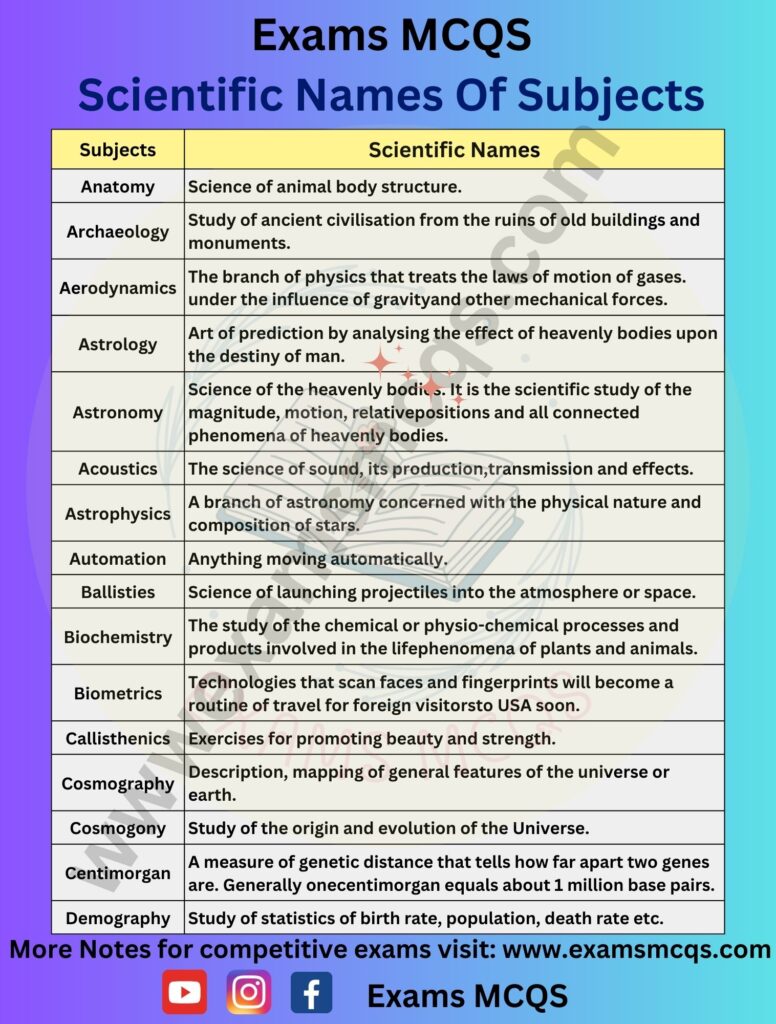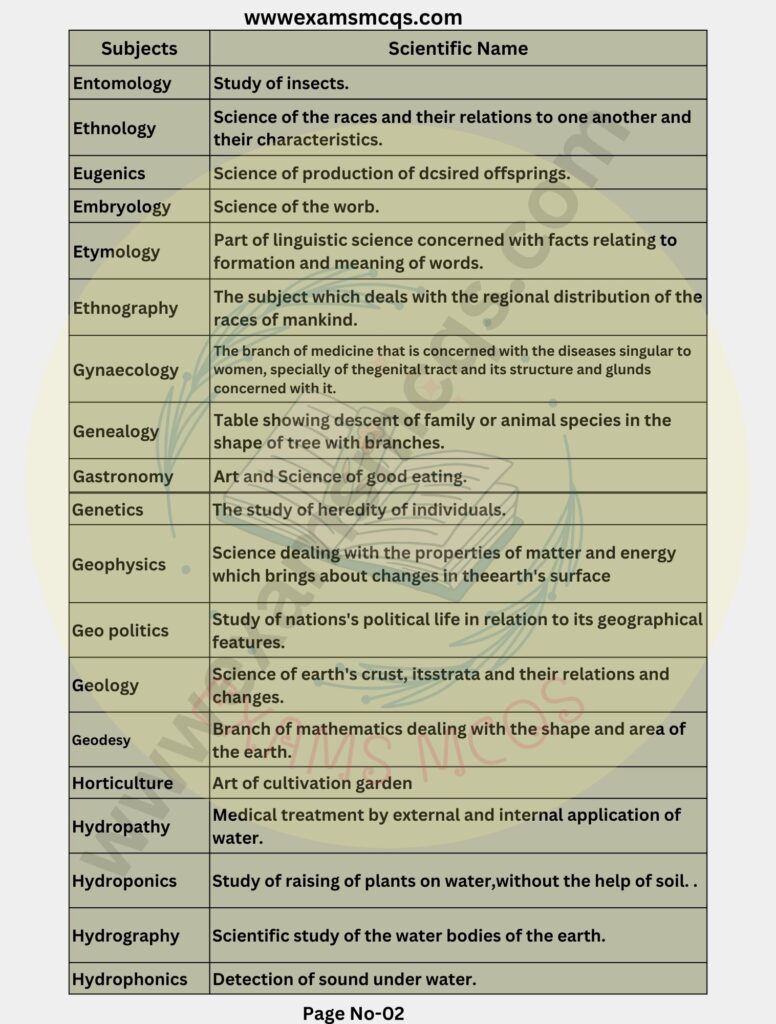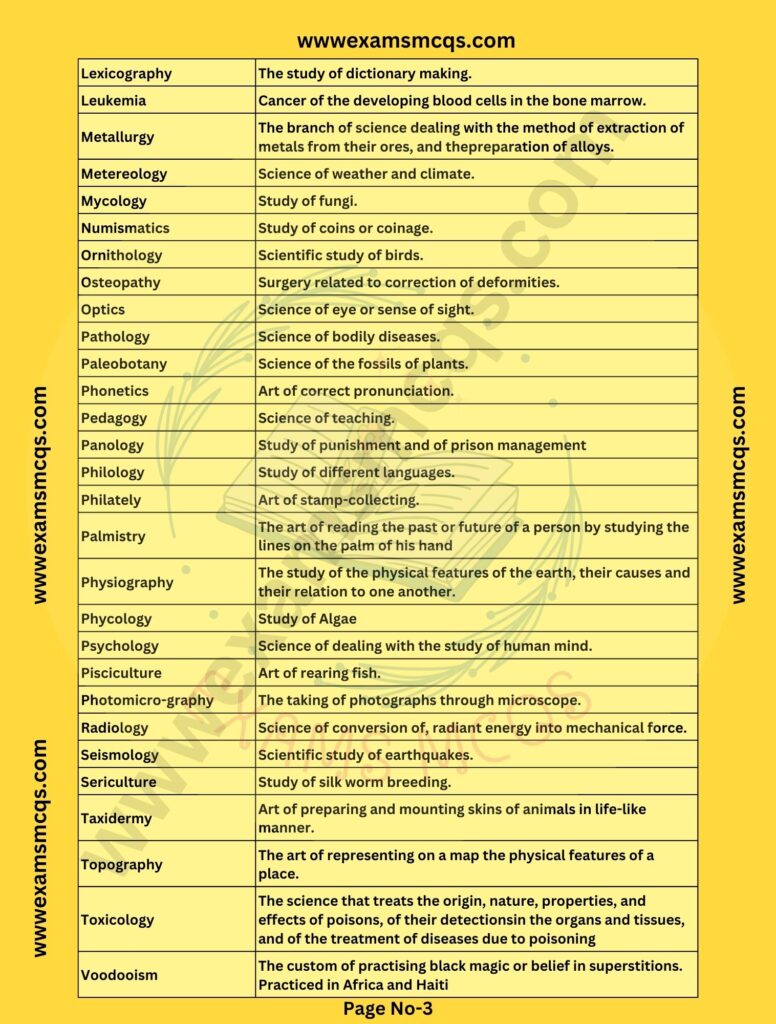| Genetics | The study of heredity of individuals. |
| Geophysics | Science dealing with the properties of matter and energy which brings about changes in theearth’s surface |
| Geo politics | Study of nations’s political life in relation to its geographical features. |
| Geology | Science of earth’s crust, itsstrata and their relations and changes. |
| Geodesy | Branch of mathematics dealing with the shape and area of the earth. |
| Horticulture | Art of cultivation garden |
| Hydropathy | Medical treatment by external and internal application of water. |
| Hydroponics | Study of raising of plants on water, without the help of soil. . |
| Hydrodynamics | Scientific study of the force exerted by liquids. Use of sun-bath in healing diseases. |
| Heliotherapy |
| Hydrography | Scientific study of the water bodies of the earth. |
| Hydrophonics | Detection of sound under water. |
| Lexicography | The study of dictionary making. |
| Leukemia | Cancer of the developing blood cells in the bone marrow. |
| Metallurgy | The branch of science dealing with the method of extraction of metals from their ores, and thepreparation of alloys. |
| Metereology | Science of weather and climate. |
| Mycology | Study of fungi. |
| Numismatics | Study of coins or coinage. |
| Ornithology | Scientific study of birds. |
| Osteopathy | Surgery related to correction of deformities. |
| Optics | Science of eye or sense of sight. |
| Pathology | Science of bodily diseases. |
| Paleobotany | Science of the fossils of plants. |
| Phonetics | Art of correct pronunciation. |
| Pedagogy | Science of teaching. |
| Panology | Study of punishment and of prison management |
| Philology | Study of different languages. |
| Philately | Art of stamp-collecting. |
| Palmistry | The art of reading the past or future of a person by studying the lines on the palm of his hand |
| Physiography | The study of the physical features of the earth, their causes and their relation to one another. |
| Phycology | Study of Algae |
| Psychology | Science of dealing with the study of human mind. |
| Pisciculture | Art of rearing fish. |
| Photomicro-graphy | The taking of photographs through microscope. |
| Radiology | Science of conversion of, radiant energy into mechanical force. |
| Seismology | Scientific study of earthquakes. |
| Sericulture | Study of silk worm breeding. |
| Taxidermy | Art of preparing and mounting skins of animals in life-like manner. |
| Topography | The art of representing on a map the physical features of a place. |
| Toxicology | The science that treats the origin, nature, properties, and effects of poisons, of their detectionsin the organs and tissues, and of the treatment of diseases due to poisoning |
| Voodooism | The custom of practising black magic or belief in superstitions. Practiced in Africa and Haiti |


